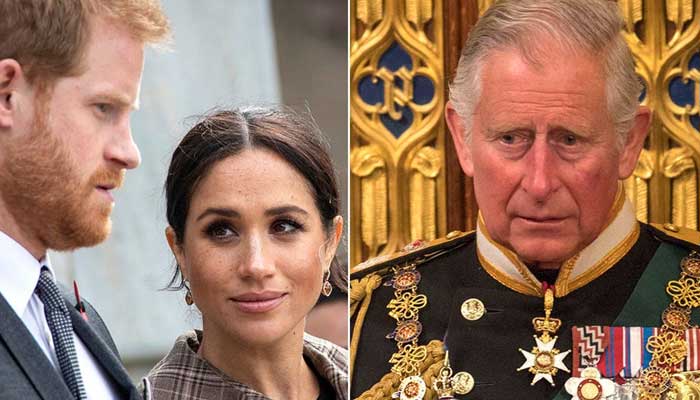
Breaking news: Meghan Markle officially stripped of royal succession rights by Prince Charles: the Duchess immediately called her mother for “rescue.”
Meghan Markle’s demand for an inheritance from Prince Charles was ultimately cancelled due to various intricate factors that intersected within the realms of royal tradition, legal constraints, and personal dynamics.
The request, which may have seemed reasonable on the surface, triggered a series of deliberations and considerations that led to its eventual withdrawal. To unravel the complexities surrounding this issue, we need to delve deeper into the specifics of royal finances, the nuances of inheritances within the monarchy, and the broader implications of Meghan’s status as a member of the royal family.

First and foremost, it is crucial to recognize that the British royal family operates within a highly structured framework when it comes to financial matters. The funding sources for senior royals are primarily derived from the Sovereign Grant, which is allocated by the government and covers official expenses such as staff salaries, travel costs, and maintenance of royal residences. This system is designed to ensure transparency and accountability in the allocation of public funds to support the monarchy’s activities.
However, inheritances within the royal family are governed by a different set of rules and protocols. While it is not uncommon for members of the royal family to receive inheritances from their relatives, the specifics of such transactions are often shrouded in secrecy and subject to internal negotiations.
In Meghan Markle’s case, her request for an inheritance from Prince Charles raised eyebrows due to the unprecedented nature of the demand and the implications it carried for the established protocols within the royal household.
Moreover, Meghan’s status as a former senior royal who had stepped back from official duties further complicated the situation. Her departure from the royal fold had already sparked debates and speculation about her financial arrangements and future prospects within the royal family.
Against this backdrop, her request for an inheritance from Charles could have been perceived as a calculated move to assert her financial independence and secure her position within the royal hierarchy.
Additionally, the personal dynamics between Meghan Markle and the members of the royal family cannot be overlooked in this context. Tensions and rifts that had emerged during her time as a working royal continued to cast a shadow over her interactions with the royal household.
The dynamics of power, influence, and reputation management played a significant role in shaping the responses to Meghan’s request for an inheritance, highlighting the complexities of navigating personal relationships within the royal family.

Ultimately, the decision to cancel Meghan Markle’s demand for an inheritance from Prince Charles was likely influenced by a combination of these factors. The need to uphold the traditional protocols and values of the monarchy, the complexities of financial arrangements within the royal household, and the personal dynamics at play all converged to lead to the withdrawal of the request.
While the specifics of the discussions and negotiations that took place behind closed doors may remain confidential, the broader implications of this episode shed light on the intricate web of relationships and power dynamics that define the world of the British royal family.
Meghan Markle’s demand for an inheritance from Prince Charles was cancelled due to a complex interplay of factors that encompassed royal traditions, legal constraints, and personal dynamics.
By examining the nuances of royal finances, the protocols of inheritances within the monarchy, and the broader implications of Meghan’s status as a former senior royal, we can gain a deeper understanding of the intricate dynamics that shaped the outcome of this episode.
The cancellation of Meghan’s request serves as a reminder of the complexities and challenges that accompany life within the royal family, highlighting the delicate balance between tradition, modernity, and personal agency in navigating the
